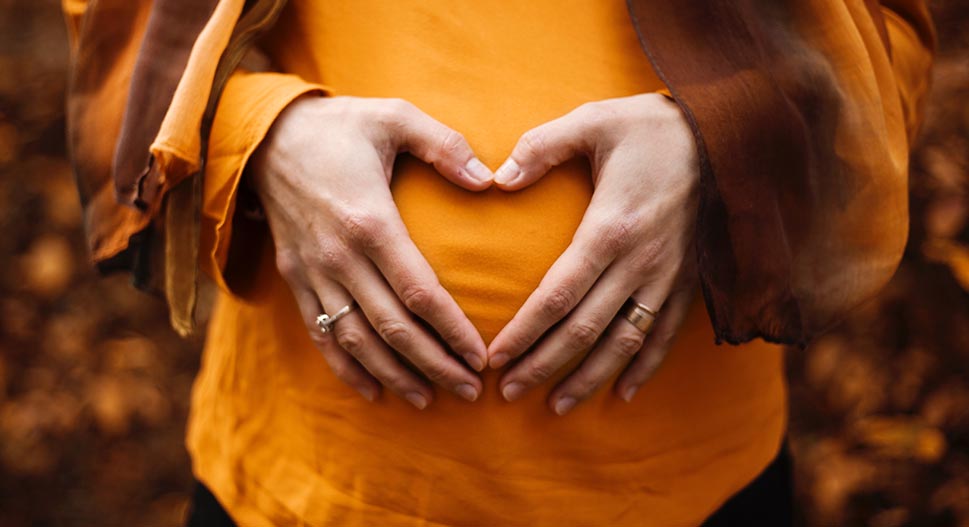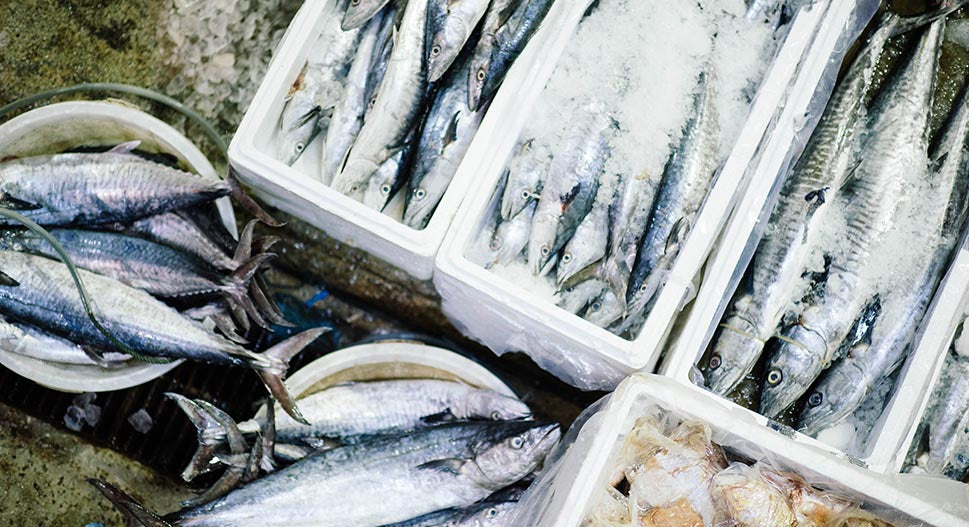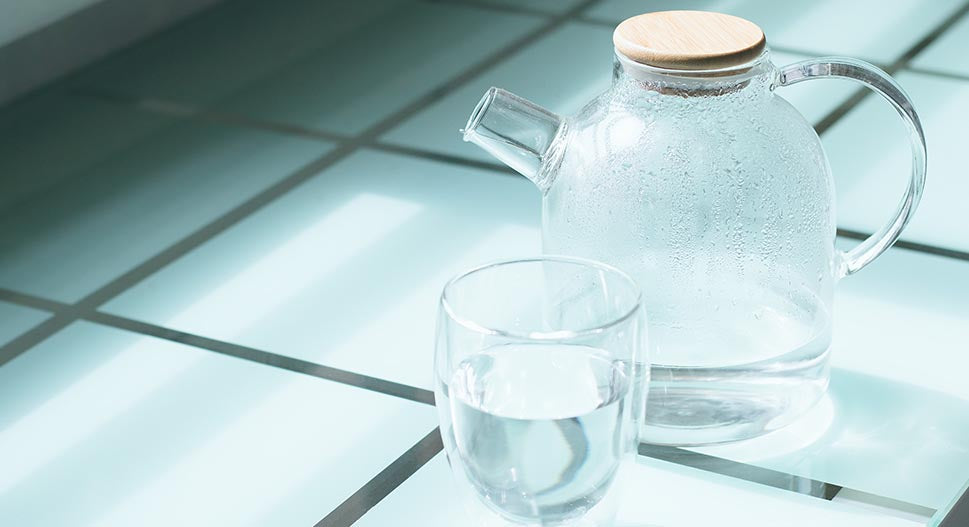
“Eat this.” “Don’t eat that!” Mums-to-be want to do their best for their babies, yet the advice they can get about what to eat and what not to eat may get very confusing.
We bust the top 10 pregnancy nutrition myths to help set the record straight.
MYTH 1: My baby will get everything it needs, regardless of what I eat
This is not true. Research shows that what you eat when you are pregnant is very important.
Food choices not only influence the baby’s health during pregnancy, but can also have an impact on a child’s long-term health. Mothers who eat an unhealthy diet during pregnancy will increase the risk of a baby being born overweight and in the long-term predispose them to obesity, raised cholesterol levels and poor blood sugar control.
Similarly, not eating enough during pregnancy may cause the unborn baby to be born with a low birth weight and with mental retardation.
A healthy pregnancy diet should include a combination of:
- MACRONUTRIENTS: carbohydrates, proteins and fats
- MICRONUTRIENTS: particularly folic, iodine and essential fatty acids

MYTH 2: I can eat for two
Surely with two to feed, I can eat as much as I want! Sadly not. While you do need extra nutrients like calcium and iron when you are pregnant, you do not need many extra calories until the third trimester. And even then, it’s only 350 additional calories each day.
And guess what? Those extra calories that you do consume need to be nutritious calories, not junk calories. If you do end up literally “eating for two”, you will simply just gain excess weight.
MYTH 3: I should listen to my pregnancy cravings
Whilst pregnancy cravings are a real thing (caused by hormonal changes), there is no evidence to suggest that cravings are a sign of what your body needs, as the old wives’ tales makes us believe.
Spoil yourself in moderation. Where possible, try to meet your cravings by choosing healthier options. If you have non-food related cravings (such as ice, coal or clay), this is a condition called ‘pica’ that you need to discuss with your doctor.

MYTH 4: Fish is not safe to eat during pregnancy
Omega-3 fatty acids are very important for developing the baby’s brain and eyes. You’ll find these fatty acids in oily fish like herring, mackerel, sardines, salmon and trout.
The issue with fish is that certain fish such as shark, swordfish, king mackerel, salmon and tuna contain mercury, as well as other pollutants like dioxins and polychlorinated biphenyls (PCB’s). Consuming too much mercury or to many pollutants can be harmful to your baby (i.e. brain damage). It’s therefore recommended that during pregnancy, women consume only 2 portions of OILY fish per week.
Tuna doesn’t count as an oily fish, so you can eat tuna (2 steaks or 4 cans) in addition to these 2 portions of oily fish.
When you have fish, always make sure you cook it well.
MYTH 5: I can prevent my child from developing allergies by avoiding certain foods
Some guidelines recommend that you avoid peanuts during pregnancy and breastfeeding. However, other studies have shown no effect on preventing peanut allergies in children by removing it from the mother’s diet, even for those with a family history of such allergies.
For mums-to-be who have a history of severe atopic disease (eczema, asthma etc.), they should still be vigilant about their intake of peanuts while more research is done. However for other expecting mums who don’t have any allergies, it is recommended that they don’t avoid foods associated with allergies, such as peanuts, cow’s milk and wheat.
The key to eating right during pregnancy is to eat a range of different foods from each food group, to ensure you get all the nutrients you need.

MYTH 6: I can’t touch alcohol while pregnant
The advice on alcohol intake during pregnancy is conflicting. The reason for this is that it’s difficult to predict the impact of drinking alcohol on any given pregnancy, as every woman will have differing amounts of the enzyme that breaks down alcohol.
Previously it was thought that drinking any alcohol was linked to low birth weight babies or premature birth, as well as other complications like foetal alcohol syndrome. However some recent studies have shown that minimal alcohol consumed during the first trimester doesn’t appear to increase the risk of blood pressure or low birth weights.
Nonetheless, since it’s not clear how much alcohol it takes to cause health problems in babies, the best advice is that women should avoid alcohol if they are pregnant. That said, it’s unlikely that a sip of Champagne on Christmas Day for example will cause any harm. In summary, it’s up to each mom-to-be to consult her doctor and decide if she’ll have the occasional drink during pregnancy or not.
MYTH 7: A mug of coffee is a no-no when I’m pregnant
It can take pregnant women 1.5 - 3.5 times longer to eliminate caffeine from the body. Some studies have found that too much caffeine is also linked to an increased risk of miscarriage or pre-term birth. However moderate amounts of caffeine (200mg per day) have not been found to have a negative effect on pregnancy, so your daily cup of coffee is ok to keep having if you still fancy it.

MYTH 8: I can’t eat any cheese or eggs during my pregnancy
The bad news for cheese lovers is that during pregnancy you need to AVOID the following dairy products:
- Unpasteurised cheeses and milk
- Soft cheese with a white rind, e.g. Brie and Camembert
- Blue-veined cheeses, e.g. Stilton
- Goats cheese
However, you can still have hard cheeses, like cheddar, edam, feta, ricotta or mozzarella.
In terms of egg-based foods, you need to AVOID of the following:
- Egg nog
- Soft boiled eggs
- Foods containing raw eggs, e.g mayonnaise and mousse
MYTH 9: Supplements are essential during pregnancy
A healthy and balanced diet will provide most of the vitamins and minerals and nutrients that expecting mothers need – however not all.
The nutrients that you will need to be vigilant about or may need to supplement are:
- Folic acid
- Iodine
- Vitamin d
- Omega-3 fatty acids
FOLIC ACID - supplement should be taken as soon as you start thinking of conceiving, as it helps prevent early neural tube defects.
IODINE - this is needed for your baby’s brain and nervous system during pregnancy. The average British diet is lacking in iodine so this is a nutrient you may want to supplement. However, be sure to read the label as not all prenatal vitamins have iodine in them. Iodine rich sources are fish, dairy products, fortified cereals or iodized salt.
VITAMIN D - Several studies have linked vitamin D deficiency with an increased risk of pregnancy complications, such as gestational diabetes, preeclampsia, low birth weight and premature births. As vitamin D is from the sunshine, it is likely that you will need to top up with a supplement depending on where you live in the world.
OTHER VITAMINS - Make sure you don’t take a high dose of multivitamins, or any supplements with high levels of vitamin A.

MYTH 10: I should limit my water intake to avoid water retention and frequent bathroom tips
Frequent bathroom trips during pregnancy are due to the increased pressure of the baby pressing on the bladder. While it may be incredibly annoying to make those frequent bathroom trips, this is no excuse to cut back on the amount of fluid you are taking on board.
In fact, your general fluid requirements increase during pregnancy to support foetal circulation, a higher blood volume and amniotic fluid. So, its recommended to keep sipping away at water throughout the day and make sure your urine is always a pale straw colour.
References available on request
NEXT UP:
Discover our Maternity Activewear >
What exercise can I do during my first trimester of pregnancy? >





























































